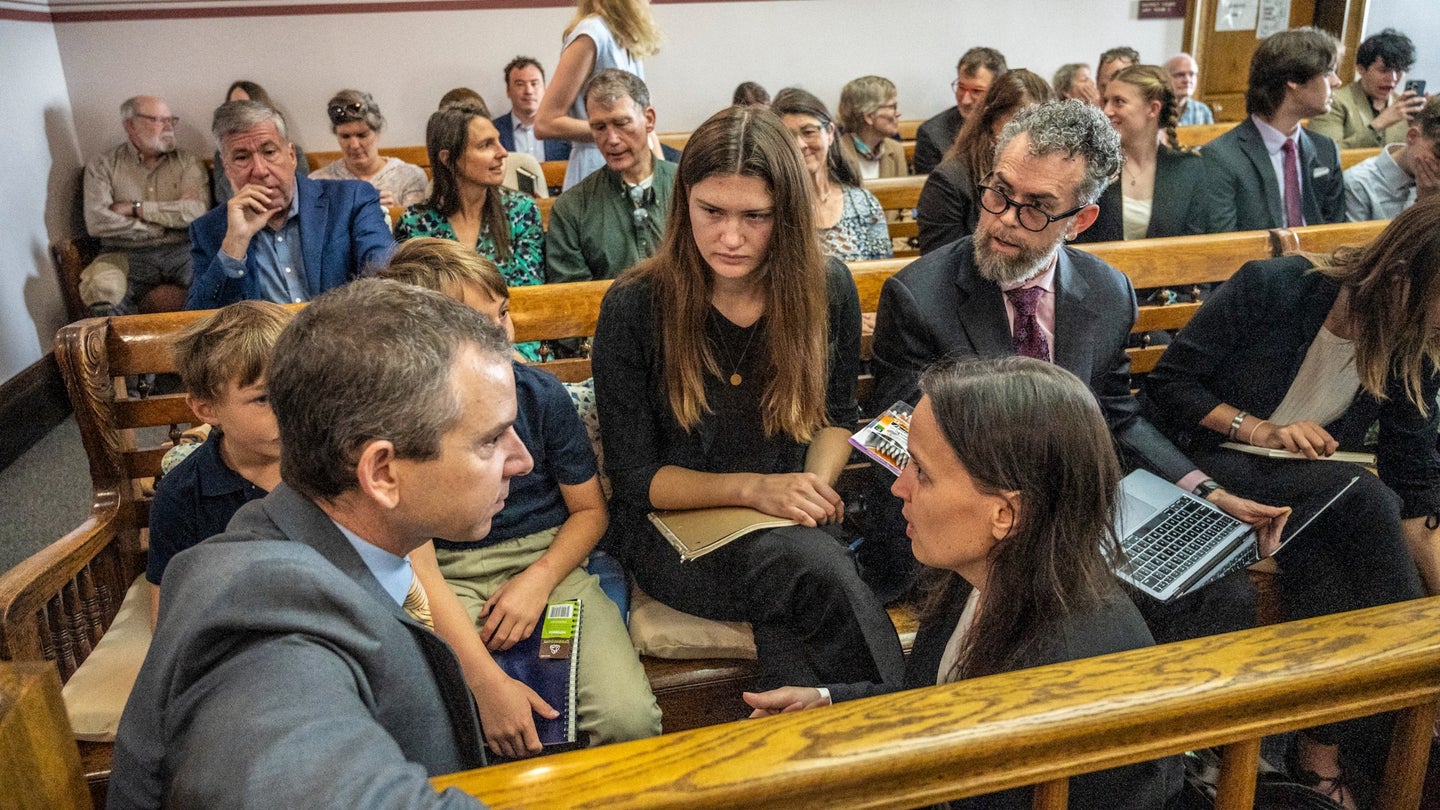Judge sides with youth activists in groundbreaking climate change lawsuit
A judge found that a provision in a state law violates their constitutional right to a 'clean and healthful environment.'

On August 14, a judge in Montana sided with youth climate activists who argued in a first-of-its-kind lawsuit that state agencies permitting fossil fuel development without considering its effect on the climate were violating their constitutional right to a “clean and healthful environment.” The groundbreaking trial in the United States adds to a small, but growing, number of legal decisions surrounding a duty by the government to protect US citizens from the worst effects of climate change.
[Related: Young climate defenders bring hope in an unprecedented US lawsuit.]
The provision in question is part of the Montana Environmental Policy Act which states that agencies are not permitted to consider the effects of greenhouse gasses on climate change when permitting new fossil fuel projects. In Held v. Montana, District Court Judge Kathy Seeley found that the provision is unconstitutional. While the latest ruling won’t prevent burning fossil fuels or mining in the state, it will reverse this recently passed state law that prohibits state agencies from considering emissions when permitting for fossil fuel projects.
“Montana’s emissions and climate change have been proven to be a substantial factor in causing climate impacts to Montana’s environment and harm and injury” to the youth, Judge Seeley wrote in the ruling.
It is now up to the Montana State Legislature to determine how to bring this policy into compliance. Changes may take some time, as the state has numerous fossil fuel and mining interests and is dominated by Republicans in the statehouse.
Julia Olson, an attorney representing the youth and with Our Children’s Trust celebrated the ruling. “As fires rage in the West, fueled by fossil fuel pollution, today’s ruling in Montana is a game-changer that marks a turning point in this generation’s efforts to save the planet from the devastating effects of human-caused climate chaos,” Olson said in a statement. “This is a huge win for Montana, for youth, for democracy, and for our climate. More rulings like this will certainly come.”
During the two-week long trial in June, the state of Montana did not try to dispute the science of climate change, but they argued the state’s greenhouse gas emissions were small in comparison to global emissions. The Montana attorney general’s office will appeal the ruling to the Montana Supreme Court.
“This ruling is absurd, but not surprising from a judge who let the plaintiffs’ attorneys put on a weeklong taxpayer-funded publicity stunt that was supposed to be a trial,” Emily Flower, a spokeswoman for Attorney General Austin Knudsen, said in a statement according to Associated Press. “Their same legal theory has been thrown out of federal court and courts in more than a dozen states. The State will appeal.”
During the trial, Stockholm Environment Institute expert Peter Erickson testified on behalf of the plaintiffs, saying he found that Montana emits the sixth-highest volume of greenhouse gas emissions per capita among US states and more than more than the total amount from 100 countries. He said that the state also has the potential to extract and burn even more, as it contains the largest recoverable coal deposits in the US and 10 times more oil than the state’s 4,000 oil wells currently draw.
[Related: Some climate activists aren’t suing over the future—they are taking aim at the present.]
The case was brought to court by 16 young Montanans ranging in age from five to 22, and is the nation’s first constitutional and first youth-led climate change lawsuit brought to trial. Some experts believe that this win could still energize the environmental movement and help reshape climate litigation across the United States. Climate cases around the world have more than doubled since 2018, but lawsuits led by youth haven’t fared as well as this caseAccording to a report published in July from the United Nations Environment Program and Columbia’s Sabin Center for Climate Change Law, at least 14 of these cases have been dismissed.
The plaintiffs made claims about injuries they have suffered as a result of climate change, including 22-year-old plaintiff Rikki Held detailing how extreme weather has hurt her family’s ranch.
The state argued that Montana’s contribution to greenhouse gas emissions is small and that changing the law would not bring on a major impact, also contending that the legislature should weigh in on the law. This was a surprising pivot from the expected climate denial defense.
“People around the world are watching this case,” Michael Gerrard, the founder of Columbia’s Sabin Center for Climate Change Law, told The Washington Post. “Everyone expected them to put on a more vigorous defense. And they may have concluded that the underlying science of climate change was so strong that they didn’t want to contest it.”
The nonprofit law firm Our Children’s Trust represented the plaintiffs in this case and has taken legal action on behalf of youths in all 50 states. It currently has cases pending in four other states.
